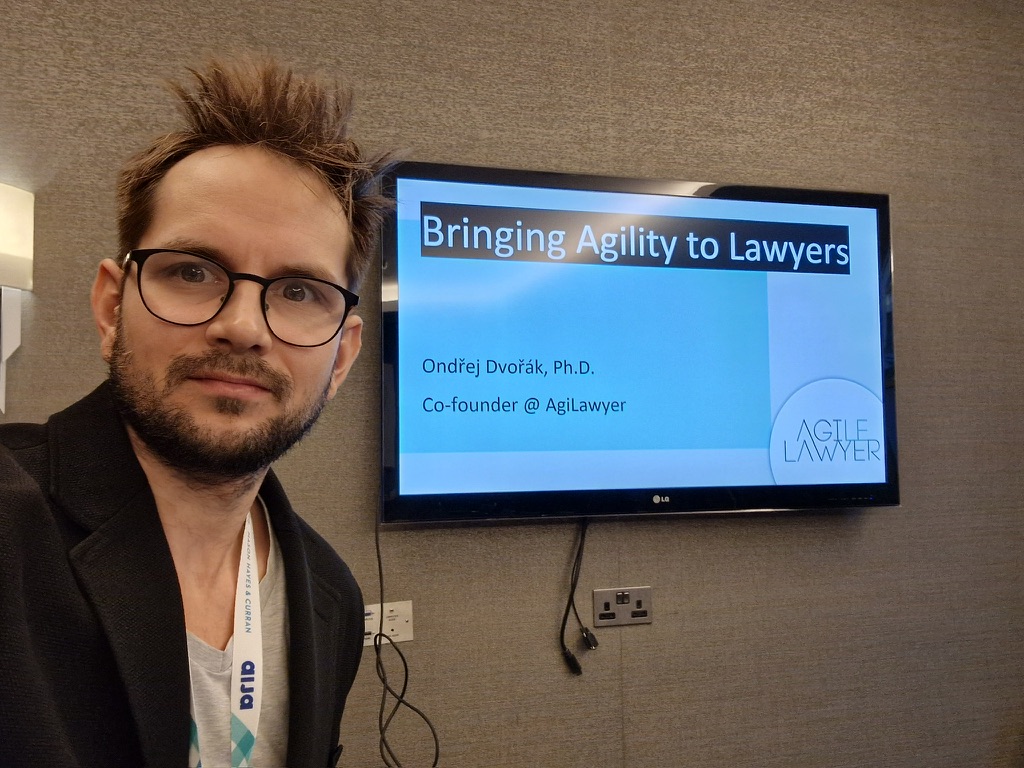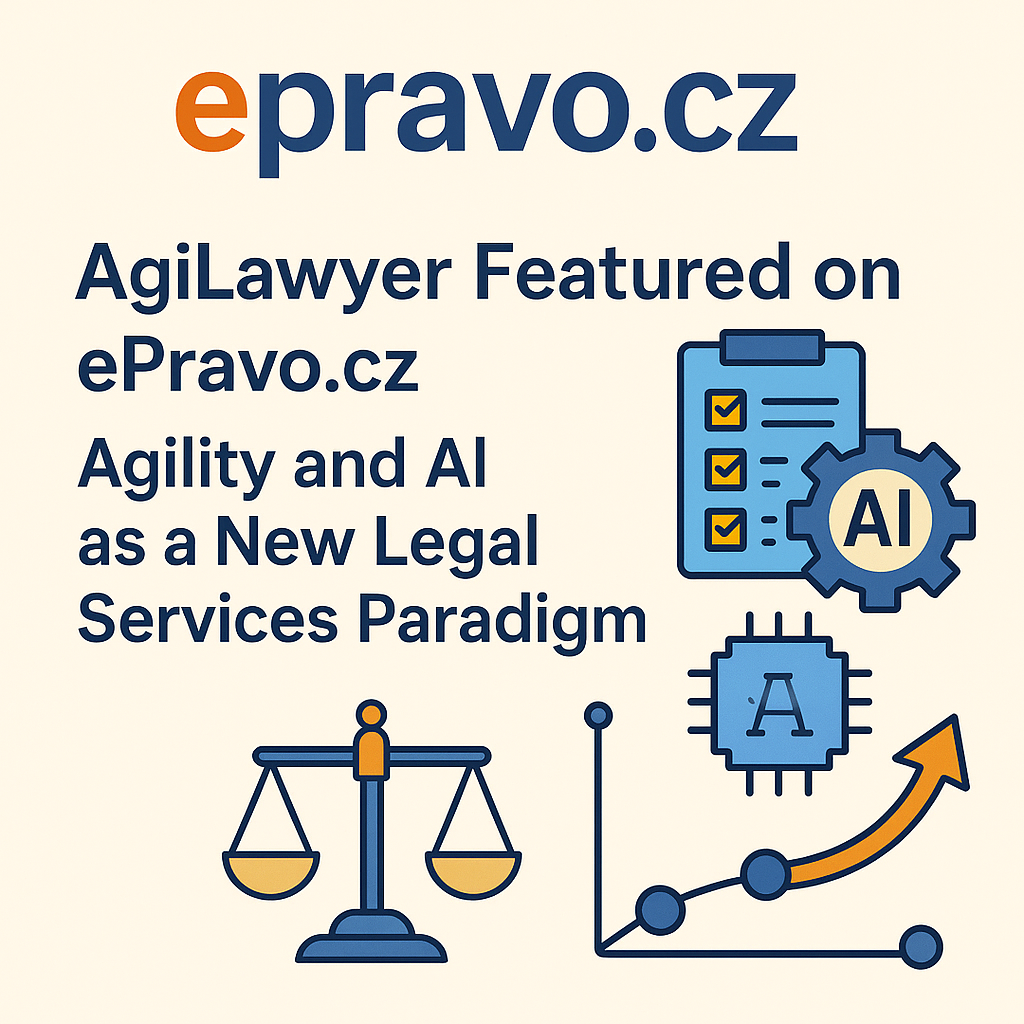Bringing Agility to Lawyers — Coaching Session at AIJA Edinburgh

The legal profession is evolving, with clients expecting speed, adaptability, and reliability. Yet many law firms still struggle with inefficiencies: endless to-do lists, shifting priorities, unpredictable workflows, and communication breakdowns. At the AIJA Annual Conference in Edinburgh, AgiLawyer delivered a coaching session to show how agility can provide a solution.

1. Understanding Agility in a Legal Context
Agility, as defined by the Business Agility Institute, is “a set of organizational capabilities, behaviors, and ways of working that affords your business the freedom, flexibility, and resilience to achieve its purpose—no matter what the future brings.”
For law firms, this means more than process optimization—it’s about building resilience, staying close to clients, and delivering value continuously.
2. Drivers for Agile Adoption in Law Firms
Drawing on AgiLawyer’s research, Ondřej highlighted key reasons firms explore agility:
- Overwhelming to-do lists with unclear priorities
- Fee-earner burnout from multitasking and poor focus
- Missed deadlines and loss of client confidence
- Ineffective meetings and communication chaos
Interactive exercises—like the Multitasking Name Game—demonstrated how multitasking slows performance, while focus and smaller batches accelerate delivery.
3. Agile Pillars: Principles in Action
Participants explored core agile principles, including:
- Customer value first — early and continuous delivery of useful work
- Welcoming change — adapting requirements, even late in the process
- Continuous improvement — reflecting and adjusting regularly
Using the Coin Game, the session showed how breaking work into smaller, manageable batches consistently leads to faster, better results.
4. Transparency and Teamwork
Agility thrives on visibility. The session introduced task boards to track progress—from “to do” to “done”—making priorities clear and responsibilities transparent. For law firms, such simple tools can cut through chaos, align teams, and boost accountability.
5. Agility in Pro Bono
Finally, the session spotlighted how agility isn’t just for commercial practice. It can also enhance pro bono projects, ensuring volunteers coordinate effectively, avoid duplication, and deliver maximum impact to communities in need.
Takeaways for Participants
Attendees left with:
- A practical understanding of why agility matters in legal practice
- Hands-on experience with agile exercises and tools
- Insights into reducing inefficiencies and burnout
- Inspiration to apply agility not only to client work, but also to pro bono initiatives
Looking Ahead
The AIJA coaching session in Edinburgh demonstrated that agility is not an abstract concept—it’s a practical, flexible approach that law firms can adopt immediately. By fostering adaptability, transparency, and continuous improvement, agile methods empower lawyers to serve clients more effectively while creating healthier, more sustainable workplaces.





